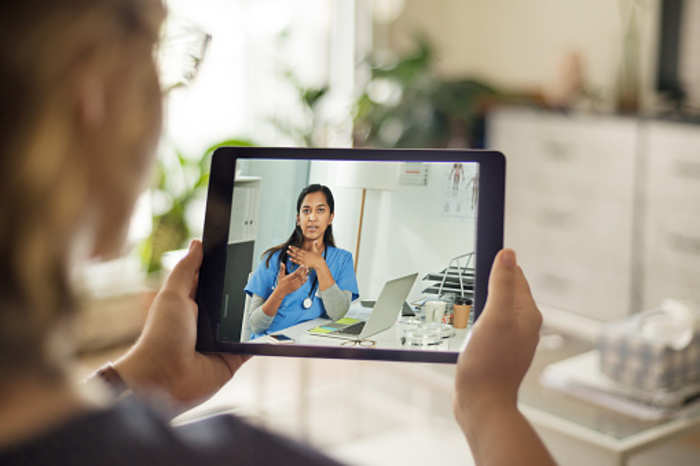Has the COVID-19 pandemic changed the doctor-patient relationship forever? – ET HealthWorld
 By Dr.Varun Deshmukh
By Dr.Varun Deshmukh
COVID pandemic has taught us many lessons. Some of them are bitter, but nonetheless, all valuable. When the pandemic set in and the lockdown was announced in March 2020, we didn’t have any idea what is coming up. As the days passed and lockdown kept on getting prolonged, we started to get some understanding of the situation. The data of illness, including deaths worldwide, made us feel fortunate, to survive from the wrath of this new problem but at the same time would send chills down the spine thinking what could happen if the disease manifested in its full potential.
We all know about the growing sense of consumer-centric attitude, with the medical practice being described as a service and the doctors being ever more aware of the medical laws and ethics, mostly including the art of ‘safe practice’. A consultation on telephone or video call would not be considered sufficient. Also, there would be questions regarding the medico-legal implications of such consult. Both the sides – the doctor and the patients would consider them as incomplete and inefficient. However, during this pandemic, the overall paradigm of doctor-patient consultation has changed. The doctors have realized that it is not necessary to always call the patient in OPD, especially for follow-up. Most of the relevant findings can be elicited by properly formed inquiries to patients and by seeing them in videos or photos. This also helps doctors serve more patients at the same time. From a patient’s perspective, they do not have to leave their home for a consult. Sometimes follow-up patients, like cancer, neurology, or cardiology patients live in other cities and their travelling can be reduced or avoided with the tele-consultation.
Secondly, there is a growing practice of guiding doctors at a remote centre, where patients are admitted, infrastructure may be there but expertise is lacking. This practice of tele-ICU is an exciting prospect, especially for a country like India.
Another important change is the evolution of group practice. This means instead of every doctor of the same specialty going in (after wearing the PPE), only one doctor would see all the patients on behalf of other colleagues and ensure reducing overall exposure and also rationalize the expenses of the PPE while maintaining continuity of care. This practice has increased trust among colleagues and surprisingly, patients have accepted this rather well.
In pre-COVID times, we would explain the patient’s condition and plan of treatment in person. Nowadays, we update the family on phone. We do a video call to show the patient and sometimes the other paraphernalia to give them more clarity about the patient’s condition. We have become more tolerant of patients having mobile phones in the ICU, as we have realized that is the only way for them to be in touch with their families.
Even though the doctor’s community was not very comfortable with these changes in the beginning, with one and half years we are coming in term with these new normal. We are also continuously fine-tuning and improving the process. We have got overall, a good response from patients and families. I definitely think this change in doctor-patient relation is going to be there for a long time, even after the pandemic is gone.
The preparedness for the third wave is at multiple levels. First of all, our mindset is set to fight this tooth and nail. We began with uncertainty and apprehension but the medical fraternity has grown in strength and will. Most of us have had close encounters with this disease and many have suffered personal losses. But this only has made us stronger. We are now more prepared with more expertise, and also more knit as a family.
Every day more and more people get their vaccine shots. This also gives a glimmer of hope about a good time to come. We have to accept the situation as it is and find out ways to live with it, rather than win over this.
Dr. Varun Deshmukh, Consultant Critical Care, Chief Intensivist, Jaslok Hospital and Research Centre
(DISCLAIMER: The views expressed are solely of the author and ETHealthworld.com does not necessarily subscribe to it. ETHealthworld.com shall not be responsible for any damage caused to any person/organisation directly or indirectly).
For all the latest Health News Click Here
For the latest news and updates, follow us on Google News.
